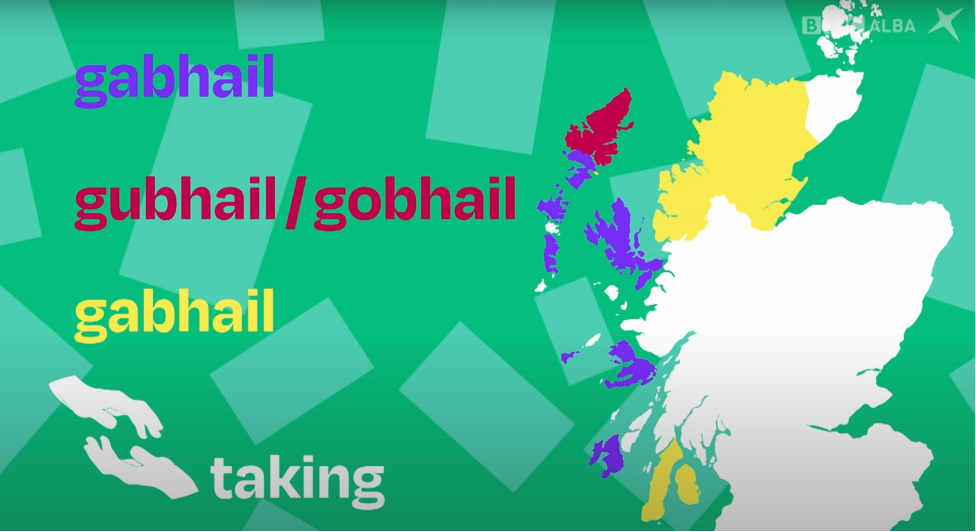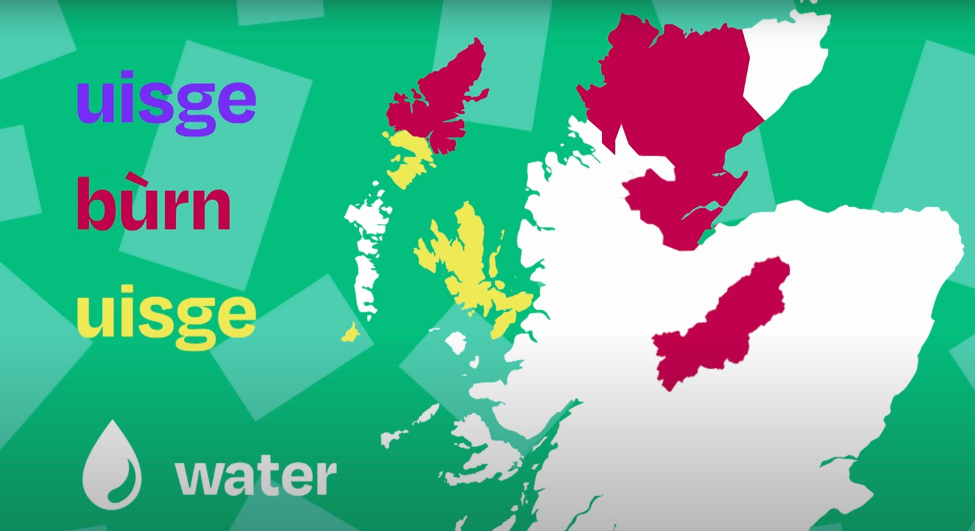From region to region
Bho sgìre gu sgìre
At level B2 we should have heard many different dialects, and we've certainly heard a range of them from the recordings in Tobar an Dualchais.
Common words vary from region to region.
Remember though, for every example in Gaelic, there will be plenty of examples in English!
Often, you won't hear –bh– (or –gh– and –mh– ) in the middle of the word, so gabhail is usually pronounced ga:ail rather than gavail .
In the same way, you will hear sgrìːadh (sgrʲiːəɣ) rather than sgrìobhadh (sgrʲiːvəɣ) and leuːadh (Lʲeːəɣ) rather than leughadh (Lʲeːvəɣ).

We have used IPA here only as a guide. You can find more about this here.
| –bh–/–gh | ||||
| gabhail | ga v ail | ga – ail | go – ail | gu – ail |
| uabhasach | ua v asach | ua – asach | ||
| àbhaist | à v aist | à – aist | à w aist | à y aist |
| abhainn | a v ainn | a – ainn | a w ainn | a y ainn |
| sàmhach | sà v ach | sà – ach |
As is true in English, there are several areas that do not pronounce –t– in the middle of the word.
Therefore, you will hear cinneach (kʲĩːNʲəx), especially in Skye, rather than cinnteach (kʲĩːNʲdʲəx) and inne (ĩːNʲə) rather than innte (ĩːNʲdʲə).
| –t | |
| cinn t each | cinneach |
| smaoin t inn | smaoininn |
| inn t e | inne |
| cluinn t inn | cluinninn |
| can t ail | canail |
In North Uist, Skye and Harris, –oi– is heard pronounced –eh– rather than –oy– :
| –oi | ||
| coimhead | k oy ed | k eh– id |
| roimhe | r oy e | r eh– e |
| coimhearsnachd | k oy ersnachk | k eh– rsnachk |
People in several areas add –adh at the end of short feminine words in the genitive case:
| –dh | ||
| sgoil | sgoil e | sgoil eadh |
| clann | cl oi nn e | cl oi nn eadh |
| mòine | mòn a | mòin eadh |
| grian | gr èi n e | gr èi n eadh |
| gaoth | gao i th e | gao i th eadh |
As we heard in the recording of Barra Gaelic, the people of Barra, at least in the south, say –st instead of –rt .
In most places, apart than Lewis, –rsht is heard.
| –rt | BARRAIGH | |
| ort | or sh t | o s t |
| ceart | cear sh t | cea s t |
| sagart | sagar sh t | saga s t |
| goirt | goir sh t | go s t |
